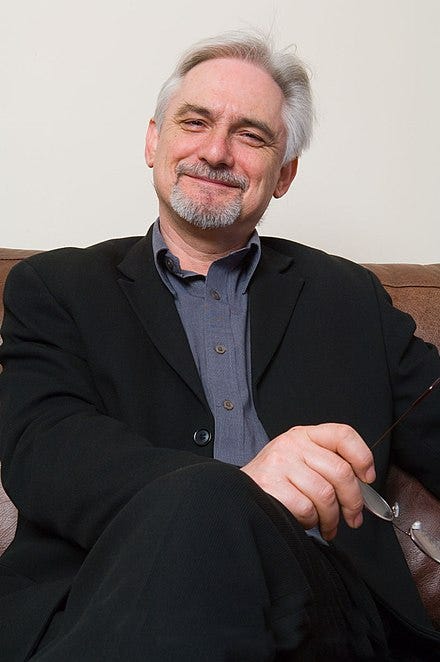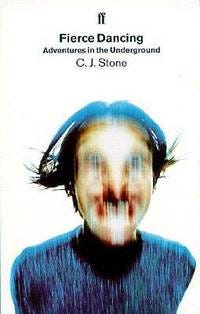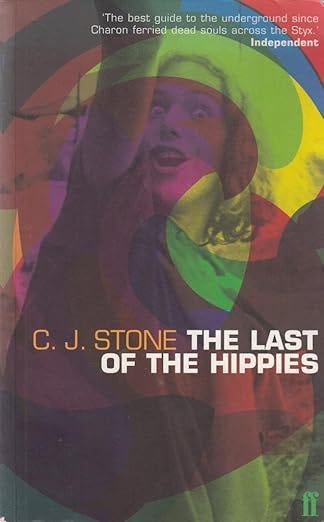C.J. STONE is a writer, newspaper columnist and author based in the UK who was taken a particular interest the nation’s countercultural and subcultural life over many years through his journalism in the Guardian, the Big Issue, the Independent and others and via his acclaimed books Fierce Dancing: Adventures in the Underground (1996) and The Last of the Hippies (1999). He recently spoke to Rock and the Beat Generation contributor MALCOLM PAUL about his Beat interests and musical tastes…
When did you first begin reading the Beats?
I came to the Beats via ’60s counterculture, like a lot of people my age. I was born in 1953, so I was around 13 when news of the hippie movement hit. I remember articles in the newspapers about what was happening in San Francisco: pictures of the Grateful Dead outside their commune in Haight-Ashbury. They looked very cool to me.
I was a big fan of Bob Dylan, and he made references to On The Road as an important book in his life. Later I read The Electric Kool Aid Acid Test by Tom Wolfe, and discovered that Neal Cassady, who drove the Merry Pranksters’ bus, was also Dean Moriarty in On the Road, which I must have read at some point, although it didn’t make much of an impression on me as I remember virtually nothing of it.

Pictured above: Christopher James ‘C.J.’ Stone
Reading around the counterculture thing made me aware of Allen Ginsberg, who was prominent in both the hippie and the beat countercultures. I know he appeared in Don’t Look Back, the Dylan film. Like almost everyone else, I know the opening lines of ‘Howl’, but I’ve never read it.
If you had a reading relationships with the Beats, can you remember which writers particularly influenced you and why? You said in a previous interview that you were a big fan of David Bowie. Did you follow a literary route back to Burroughs and Brion Gysin?
The Beat writer who has most effect on me would be William Burroughs, but this would be more because of his approach to writing, his writing style, than anything else. I read Cities of the Red Night much later. There’s something in the way he puts words together. The writings are almost like spells, or invocations. They come alive in your mind in an almost visceral, sometimes repulsive, way. He’s fucking with your brain in a way that almost no other writer can do.
When I read Ginsberg or Kerouac, I kind of know what they are doing. With Burroughs I have no idea. He seems to be working on you on some deep metaphysical level that lies beyond the words. He remains one of my favourite writers. I’ve also read Junkie and Naked Lunch. I think he’s an incredibly important writer, regardless of his Beat associations.

Pictured above: Stone’s 1996 account of rave culture
I also read Big Sur by Jack Kerouac, a copy of which was sent to me by Penny Rimbaud, the drummer with Crass. I have to say, I didn’t like it. I found the writing style to be lazy and self-indulgent and the lifestyle unappealing. The poetry at the end just reads like nonsense to me.
The other writer of the era who influenced me was Charles Bukowski. Strictly speaking he wasn’t a Beat, but he was published by Ferlinghetti, so there’s some Beat association. What I took from Bukowski was his writing style: sparse, abrupt, direct and simple.
I read Post Office and loved it, but found his subject matter a little dull and never really enjoyed anything else, except Ham on Rye, his childhood memoir. Here’s a piece I wrote about Bukowski’s influence: https://www.splicetoday.com/politics-and-media/roy-mayall-on-henry-chinaski
You said in an early communication with me thatwhen you were younger you didn’t listen to trad jazz and you preferred modern jazz. Do you mean the same iconic heroes as the Beats: Charlie Parker, Thelonious Monk, Miles Davis? Musicians pushing the boundaries, living life on the edge…
Kerouac was more associated with modern jazz than with rock music. He was famously trying to reproduce the improvised style of jazz musicians like Theolonious Monk and John Coltrane as a literary form. As a youngster I was very into jazz.
In the early ’60s there was a clash between trad jazz fans and modern jazz fans (known as ‘ravers’ and ‘mods’) and I was very much on the mod side. I guess it was because it was the only alternative music available on TV when I was growing up. I remember Jazz 625 on BBC2. It was one of the connections between me and my Dad, as he liked jazz too and we always made a point of watching it.

Pictured above: A history of the hippies by the author from 1999
Do you think there will always a place in society for movements – groups like the Beats, hippies, the rave generation? Do you still feel part of a alternative culture/way of thinking? If yes in what way?
As I understand it, Beat is as much about lifestyle as it is about literature, and I guess I come into the category, having led a Beat-lifestyle: experimenting with drugs, hitching everywhere in my youth (and into adulthood), being an itinerant, never really settling anywhere until my older years, rejecting a lot of the constraints of ‘straight’ society.
It’s certainly an approach that appealed to me in my younger years, but it has its drawbacks long term. Maybe that’s why I disliked Big Sur. I was wanting to settle down by then and Kerouac’s descriptions of what he and his friends got up to just seemed wearing to me.
My friend Kevin Davey, who wrote Playing Possum and Radio Joan interviewed Ferlinghetti a few years ago. On his 100th birthday we held a celebration down the local Labour Club. Here’s something I wrote about that: https://whitstableviews.com/2019/03/14/happy-birthday-ferlinghetti/
Note: You can find more writing by C.J. Stone at Splice Today
MALCOLM PAUL

Enjoyed this, thanks
I found the Beats through a friend who had a number of the City Lights booklets and I went backwards from there into Donald Allen’s The New American Poetry, where I found the Black Mountain gang and a bunch of others and then backwards again, into Marianne Moore, Wallace Stevens and the American Modernists. Still travelling …. Agree with you about the importance of Burroughs to the Beats, and I’ve never got along with Kerouac’s poetry. An aside about Neal Cassady – I think he also acts as the model for the Ray Hicks character in Robert Stone’s novel, Dog Soldiers.
Again, thanks
Comment by Steven Taylor on 28 April, 2024 at 7:28 am